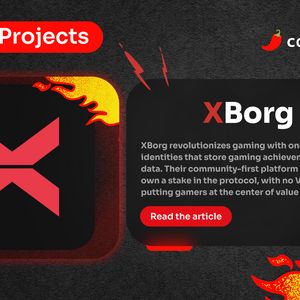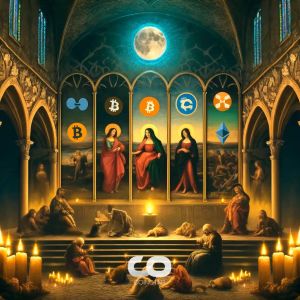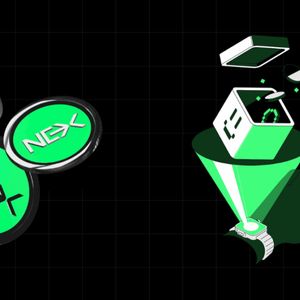Spicy Projects #12: XBorg
3 min read
What is XBorg? XBorg’s mission is refreshingly straightforward: empower players in the digital gaming landscape. They’re achieving this through a two-pronged approach that puts gamers first in ways traditional gaming platforms never could. First, they’re building a protocol that allows players to create unique onchain identities. These digital IDs store all of a player’s gaming and social data, enabling them to log into apps and games to enjoy personalized experiences based on who they are and what they’ve accomplished across the gaming universe. Second, they’re enabling players to own a stake in, actively shape, and capture the value of the protocol that makes this possible. This creates a genuine player-owned economy where the community directly benefits from the platform’s growth and success. Fan App: Leading With User Experience XBorg is focusing on scaling their app layer before building out the decentralized infrastructure. Their strategic approach prioritizes increasing live apps, users, and revenue before moving fully onchain. The centerpiece of this strategy is their Fan App product, which is already being utilized by major esports teams. This app leverages player identities to create deeper connections between teams and their fans, offering customized experiences based on engagement history and preferences. The team is poised to announce more high-profile partners shortly, expanding their reach within the competitive gaming ecosystem and bringing their player-centric approach to more communities. Community-First Philosophy What truly sets XBorg apart is their unwavering commitment to their community. Unlike many Web3 projects, XBorg: Did not raise funds from venture capital firms Does not employ market makers to artificially boost token performance Has not listed on centralized exchanges (CEXs) Instead, they gave early investment access directly to their community members, putting them first in all decision-making processes. Importantly, they did not raise against equity, ensuring that token holders can capture all the value generated by the platform. This approach creates a genuine alignment between the project’s success and community benefit—a refreshing departure from traditional gaming business models where players are often seen as customers rather than stakeholders. Why XBorg Matters Gaming has long been an industry where players contribute enormous value through their time, creativity, and social connections, yet capture very little of the economic upside. XBorg is flipping this dynamic by: Creating persistent player identities that preserve achievements and history across games Enabling data ownership that respects player privacy while enabling personalized experiences Building economic models where players benefit directly from platform growth Putting the community first in both governance and value capture This represents a fundamental shift in how gaming ecosystems can function, potentially paving the way for a more equitable future for the industry. What’s Next? XBorg is methodically executing their vision with clear priorities: Expanding their Fan App partnerships with more esports teams and gaming communities Growing their user base and increasing platform revenue Gradually building out decentralized infrastructure as adoption increases Continuing to develop their player identity protocol with new features and integrations By focusing on creating value before fully decentralizing, XBorg is taking a pragmatic approach that prioritizes sustainability and real-world utility. Fun Fact XBorg didn’t follow the typical Web3 project playbook of VC funding rounds and splashy exchange listings. Instead, they gave their earliest supporters the investment opportunities usually reserved for institutional investors. This community-first approach extends to their development process, where token holders have a genuine say in the project’s direction. From their player-centric identity solutions to their community-owned economic model, XBorg represents a bold vision for the future of gaming—one where players aren’t just participants but true stakeholders in the ecosystem they help create.

Source: Coinpaprika






